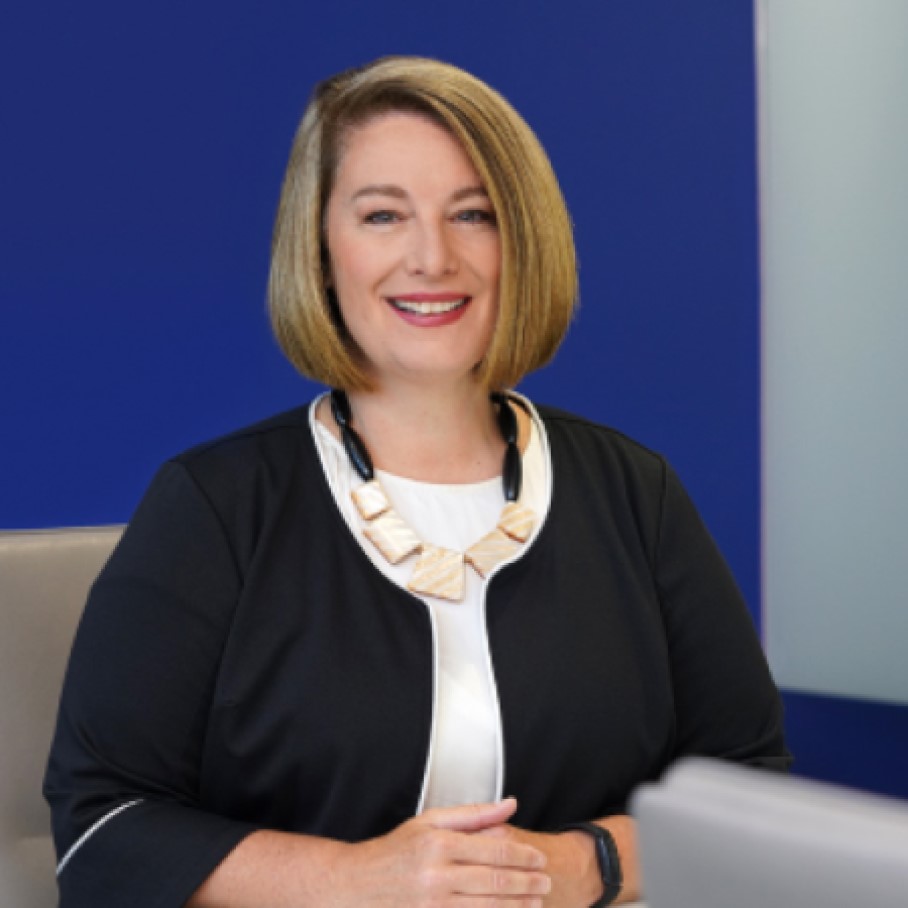Exec Chat: Alcon Seeks Vision ‘Utopia’ For Cataract Surgery Patients
Executive Summary
Jeannette Bankes, the general manager of Alcon’s global surgical business, talked to Medtech Insight about how the company is addressing the cataract surgery market with a range of intraocular lenses intended to return the patients vision to as close to its natural optimal function as possible.
Since it spun-off from Alcon has tried to transform the intraocular lens market with new technologies that can correct a patient’s vision while also treating cataracts.
Cataracts are injuries to the lens of the eye that causes it to become cloudy or opaque. Alcon is the market leader in intraocular lenses – artificial lenses implanted surgically to replace a cataractous lens. About 10 million cataract surgeries are performed each year and Alcon expects that number to grow as the population ages.
The company markets AcrySof IQ PanOptix, the first and only trifocal lens available in the US. The US Food and Drug Administration approved it 2019 to replace a cataractous lenses and mitigate presbyopia by providing improved intermediate and near visual acuity. AcrySof IQ PanOptix is designed with Alcon’s proprietary Enlighten technology to provide three focal points, including a 60 cm focal point, the typical distance people sit from their computers. By comparison, most competing IOLs are designed with an 80 cm intermediate vision point, according to Alcon.
In early 2021, Alcon launched Vivity as the US market’s first and only non-diffractive, extended depth-of-focus intraocular lens. Vivity features Alcon’s non-diffractive X-Wave technology to stretch and shift light without splitting it, so it can provide the same quality of distance vision as a monofocal lens while also providing intermediate and near focal points.
The company also recently announced plans to return to the minimally invasive glaucoma surgery (MIGS) market by acquiring Ivantis for $475m. Ivantis markets Hydrus Microstent, a MIGS device that reduces intraocular pressure for open-angle glaucoma patients in connection with cataract surgery. Alcon previously marketed the CyPass MIGS device but pulled it from the market in late 2018 after long-term studies showed evidence that CyPass caused significant endothelial cell-loss. (Also see "Alcon Sees Big Opportunity In Glaucoma Surgery; Buys Ivantis For $475M" - Medtech Insight, 8 Nov, 2021.)
Medtech Insight talked to Jeannette Bankes, the president and general manager of Alcon’s global surgical franchise to understand the problems her division is trying to splve and how Alcon can improve upon traditional monofocal intraocular lenses.
Traditionally, the industry has been very successful at delivering a monofocal vision to patients, centered around distance vision, but that doesn’t deliver the native state of multifocality – or seeing at all distances – after cataract surgery. As the technology of intraocular lenses has advanced and evolved, Alcon has been working to deliver an IOL with multifocal points and true light distribution.
But can we truly get back to as close to the biological native state of vision after cataract surgery; not needing ‘readers,’ while also not compromising on intermediate or far distances? Scientifically, when striving for multifocality, you're faced with a trade off on light distribution, whether via diffractive or non-diffractive IOLs. In the last several years, Alcon has been able to develop and commercialize presbyopia correction IOLs – or PC-IOLs. This has marked the start of our work to deliver multifocality. We introduced a lens called PanOptix, the first and only trifocal lens for US patients undergoing cataract surgery, with the possibility to deliver 20/20 vision at near, intermediate and distance vision.
Then we went a step further and added the Vivity IOL to our portfolio. ... Vivity is the first and only non-diffractive extended depth of focus IOL in the US that lets you see across distance and intermediate with functional near. In our clinical trials and now in post market trials, this IOL has a low incidence of severe or very bothersome glare and halos and is a good option for cataract patients who may not be a candidate for a diffractive IOL. Together, these lenses are offering cataract patients the opportunity to seize life without cataracts and reduce the need for glasses.
And so, with the combination of a diffractive lens, brilliantly allowing you to see across the different meaningful distances, and now Vivity, providing an option resulting in fewer bothersome halos and glares, we're seeing strong results both internationally and domestically in the US.
We celebrated our 30-year anniversary of AcrySof IQ lenses and have delivered millions and millions of them across the globe – 135 million and counting. With the presence of Alcon around the world, our clinical development capabilities, the data analytics and our optical engineers, we are able to bring surgical innovations, including our PC-IOLs, to the market.
 Jeannette Bankes, President & GM, Alcon's Global Surgical Franchise
Alcon
Jeannette Bankes, President & GM, Alcon's Global Surgical Franchise
Alcon
And you'd ask, ‘Well, if they're so great, why is it that the industry isn’t selling more premium IOLs?’ Clearly, there is typically a patient pay component, with developed markets more able to afford them. But we are focused on bringing more cataract patients around the world to our more premium or advanced IOLs – like our PC-IOLs – to help them to see brilliantly.
In order to this, we have to support physicians in setting up the value of these lenses and giving them tools to best measure up front in the clinic and intraoperatively to deliver on the promise of the premium lens. We offer the only intraoperative aberrometer in the US that helps deliver greater accuracy than preoperative calculation methods alone for cataract surgery.
But have we put everything around the physician to deliver on that promise diagnostically and intraoperatively? I think that's what will help us to continue to see penetration. What we've traditionally seen is, every 18 months there is half a percent or percent more market penetration of premium lenses and we've seen an acceleration of that in the last two years because of PanOptix and Vivity.
We understand what our technologies are doing. And so we're able to see the patient feedback through surveys, health, economic research, etc. So, yes, absolutely, we're talking to patients.
We don't lose sight of the physician and the capabilities around them, but we are doing more direct-to-consumer and direct-to-patient communication, because this is a space where they have a choice. We have definitely increased our engagement with patients, both from a clinical perspective, and an educational awareness perspective about cataracts and IOL options as well.
A lot of the patients know Alcon because of our contact lenses, contact lens cleaning solutions and over-the-counter allergy and lubricating eye drops. So we have a patient for life, potentially.
We just introduced Smart Solutions by Alcon, a digital platform uniquely designed for ophthalmology in the US This new platform furthers our leadership in clinic-to-operating room integration with image-guided technologies and cloud-based planning. Our first application is SmartCataract, which will eliminate manual data transfer from one piece of equipment to the next – adding tremendous value to practices by allowing remote planning and providing much-needed efficiencies.
There's probably nobody better suited than Alcon to be able to unleash this technology based on our equipment footprint around the world.
